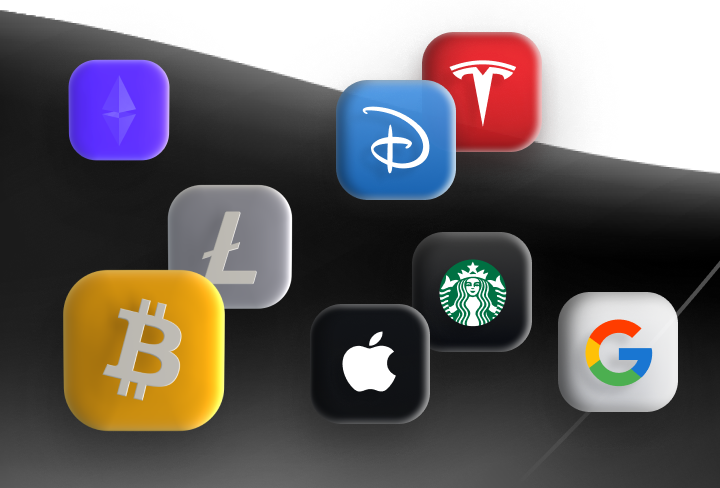What Are Financial Markets, and Why They Are Important
Talking about stocks, currencies, bonds, cryptocurrencies, we don't think that all of these assets relate to particular financial markets. What is a financial market? For newbies, the term financial market may sound scary. It may sound like something related to big money, lots of complicated operations that are understandable only for people with professional education.
Even if you think this way, you do interact with financial markets, if not daily, then very often. Would you like to understand how the markets work? If yes, keep reading.
Financial Markets: Definition
Let’s start with the meaning of the financial market. Financial markets are a marketplace where assets, such as currencies, derivatives, bonds, and stocks, are traded. The financial market serves as a place where traders can purchase and sell securities and speculate on prices. Also, financial markets provide money for organizations.
The financial markets are a marketplace where assets such as currencies, derivatives, bonds, stocks are traded. Additionally, they provide money for companies.
The financial market includes the well-known word “market”, representing the place where products can be bought or sold. The only difference between the goods market is the products you purchase or sell. Securities serve as products on financial markets.
History of Financial Markets
It's challenging to present a history of financial markets as the term includes many markets. As the stock market is the most significant, let's talk primarily about its history.
It's widely accepted that the stock market started operating in the 17th century. Amsterdam Stock Exchange was the first stock exchange established in 1602. The exchange managed the Dutch East India Company's assets, the first company that placed corporate stocks and bonds. It was a prototype of modern financial markets.

Types of Financial Markets
If you have noticed, we say financial markets in the plural form. This means there are many types. Let's consider how they differ, their benefits, and their drawbacks.
Over-the-Counter Market (OTC)
OTC is a decentralized market that doesn't have a physical location. Trades are provided digitally. The over-the-counter market doesn't require a broker so the trades are made only between two parties. Such a market presents stocks of smaller enterprises that can't enter such big markets as Nasdaq or the New York Stock Exchange. It happens because OTC markets have lower requirements. It doesn't mean that these stocks are bad. Still, if you need more reliable securities, you should enter global stock markets.
Bond Market
A bond or fixed income market is the financial market where companies issue bonds and investors buy them. Bonds are a kind of loan investors provide to firms. Companies place bonds to attract funds for different purposes. Buying bonds, investors get a percentage of their funds. Payments are made on determined dates.
Forex Market
Forex is one of the biggest financial markets with a significant annual turnover. Online brokers made this market even more attractive for traders as it takes just several minutes to place a buy or sell order. The main idea of Forex trading is that it combines buyers and sellers of a specific currency worldwide. That's why it takes several seconds to place an order and find a buyer/seller for your asset.
Stock Market
Stock, share, or an equity market is a marketplace where companies issue stocks to attract additional funds, and investors purchase them to own company shares. The main difference with the bond market is that by holding stocks, you own a company's share; while buying bonds, you only provide a loan to a firm that will be paid back later. As soon as you get your money back with a percentage, you can no longer require additional payments. Holding the company’s stocks, you receive income until you sell your shares or the company goes bankrupt
Derivatives Market
A derivative is an agreement between at least two parties. The value of the derivative is based on the chosen asset or assets if we talk about indices.
Trading on the derivatives market, you don't deal with real assets such as stocks, commodities, bonds, or currencies; you trade financial products that get their value directly from the chosen asset. Futures, options, and CFD are examples of the derivative market’s instruments.
CFD is one of the most famous financial products that is provided by many forex brokers. CFD stands for contract for difference and allows you to trade not real assets such as oil, gold, or stocks, but to speculate on the price difference.
Commodities Market
A commodity market is a marketplace where investors can place buy/sell orders on commodities or natural resources. For example, oil, metals, and corn. This market is mostly presented by CFDs that allow you to utilize the price speculations without owning real securities. What will you do with barrels of oil? It’s better to take advantage of a correct price prediction.
Money Market
The money market's main feature is that securities have high liquidity but short-term maturity (not more than a year). Such securities provide safety but low interest. The most famous examples of the money market are US Treasury bills, municipal bonds, and certificates of deposit with a short maturity.
Stock Exchange
Before, we talked about the financial markets in general. However, big stock exchanges can also be called financial markets. Let's mention three of them. NYSE (New York Stock Exchange), NASDAQ, and Nasdaq small-cap. These exchanges provide many financial operations; that's why they are called financial markets.
Over-the-Counter Market
Above, we mentioned this type of market. But here, we need to do some clarification. Two big banks can organize a deal without entering a stock exchange if both parties agree on the conditions. Still, sometimes, they have to get a quote from the stock exchange if the security wasn't traded before. In this case, parties place orders at a pre-agreed price. In a minute, a reverse trade occurs. There is no change in the portfolios, but the stock gets a stock exchange quote.

Why to trade with Libertex?
- access to a demo account free of charge
- technical assistance to the operator 5 days a week, 24 hours a day
- leverage up to 1:500
- operate on a platform for any device: Libertex and Metatrader 4 and 5
- no commissions for extractions in Latin America




